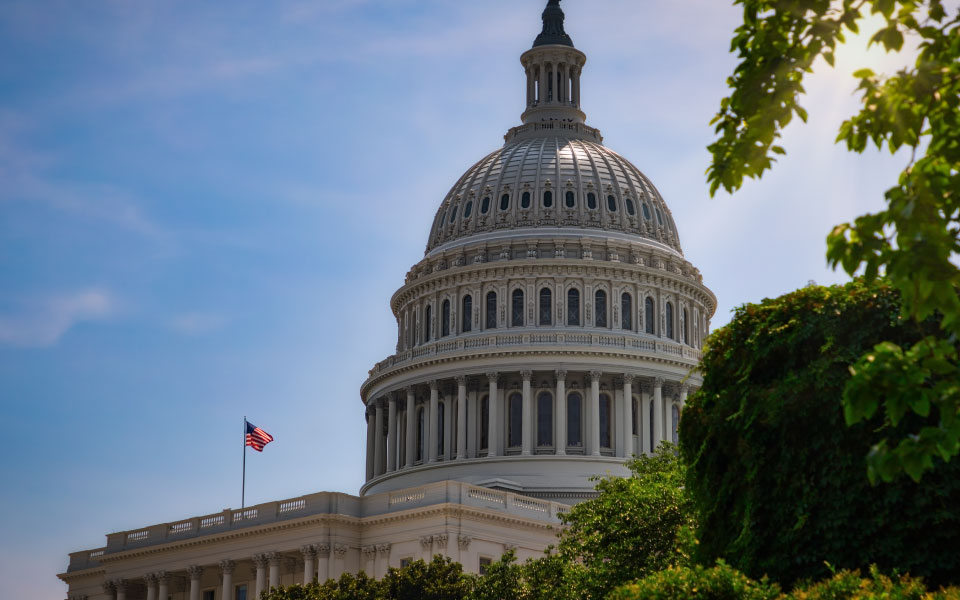At an event held by CBIZ on June 16 at our Kansas City office, our tax experts held a lively discussion about provisions in the “One Big Beautiful Bill Act.”
On May 22, the House of Representatives narrowly passed the multitrillion-dollar budget reconciliation bill. On June 16, the Senate Finance Committee published its legislative text of the bill, which includes some key updates, such as changes to tax incentives and Medicaid spending. The final bill is expected to be sent to the president before July 4, though that date could change.
While the bill is not yet finalized, it’s critical to stay on top of the latest developments to understand which provisions could impact your business.
Provisions Affecting Businesses
Based on the presentation by CBIZ experts, CFOs and decision-makers should pay attention to the following provisions as the One Big Beautiful Bill Act moves forward:
SALT Cap Increase
The House-passed version of the Bill increases the SALT cap from $10,000 to $40,000. The Senate’s proposed text keeps the SALT cap at $10,000 as a placeholder, but this amount is expected to change as legislators they to negotiate.
SALT Limits on Pass-Through Entity Workarounds
For tax years 2026 and later, the bill will treat state and local income tax payments made by partnerships and S corporations as separately stated deductions that must be claimed as itemized deductions. The deductions are subject to the SALT cap unless the entity is engaged in a trade or business and is not a Specified Service Trade or Business (SSTB) as defined under section 199A.
Industry Insight: This provision targets professional and financial services firms by potentially reducing or eliminating tax benefits they would otherwise receive via above-the-line deductions for state SALT limitation workarounds.
Bonus Depreciation
Bonus depreciation is extended at 100% for property acquired and placed in service from Jan. 19, 2025, through 2029, and through Jan. 1, 2031, for longer production period property, certain aircraft, and specified plants that were planted or grafted after Jan. 19, 2025, and before Jan. 1, 2030. There is bipartisan support for extending bonus depreciation, which was previously included in bipartisan legislation in 2024 (H.R. 7024) but failed to pass due to other controversial provisions.
Business Interest Limitation
The bill reinstates the section 163(j) business interest deduction limitation using a calculation of income that excludes the deduction for depreciation, amortization, or depletion, applying to tax years from 2025 through 2029. Similar to bonus depreciation, this provision has bipartisan support and is generally seen as more favorable for taxpayers.
Domestic Research and Experimentation Expenses
In addition to several other changes to the treatment of research and experimentation expenses (REE), the bill suspends the requirement to capitalize and amortize domestic REE over five years for tax years 2025 through 2029. The original rule implemented by the TCJA caused many companies to report phantom income, causing the payment of tax on non-existent profits. The current Senate committee language would permanently allow companies to research and development costs.
Excess Business Loss Limitation
The limitation on excess business losses (EBLs) is made permanent, and losses disallowed are carried forward as net operating losses (NOLs). Prior-year EBLs included in an NOL carryforward are treated as current-year business losses.
This provision is viewed as unfavorable for many businesses since it could effectively create a permanent disallowance of business losses unless or until a taxpayer has other business income. It is expected that the AICPA and other business organizations will continue to pressure the Senate to change this rule.
Depreciation Allowance for Qualified Production Property
The bill provides for an elective 100% depreciation allowance for qualified production property, which includes the cost of building or acquiring property used for manufacturing, production, or refining with construction starting between Jan. 19, 2025, and Jan. 1, 2030.
Industry Insight: This will be particularly relevant to the oil and gas industry as it enables increased domestic energy production.
Clean Energy
The bill terminates or modifies several green energy credit provisions, including accelerating the phase-out dates for the clean electricity production credit and the clean electricity investment credit, and limiting transferability of credits.
Payments from Partnerships to Partners
The bill makes section 707(a)(2), which addresses payments from partnerships to partners acting other than in the capacity of a partner (e.g., for services or property contributions), self-enacting rather than being subject to IRS regulations.
Opportunity Zones
The bill makes several changes to the Opportunity Zone (OZ) program, including extending the program to 2033, and implementing stricter income thresholds for eligible census tracts, requiring that at least 33% of a state’s OZs be rural, and eliminating the designation of contiguous non-low-income census tracts.
Taxation of Fringe Benefits
The unrelated business taxable income (UBTI) of tax-exempt organizations would be increased by including the amount paid or incurred for any qualified transportation fringe benefit. The original TCJA of 2017 included a similar provision, which was repealed in 2019 due to administrative challenges.
Industry Insight: Read more about other provisions in H.R. 1 that could impact not-for-profit organizations.
Moving Forward
As the One Big Beautiful Bill Act advances, business leaders and tax professionals need to stay proactive and informed about the evolving legislative landscape. Connect with a CBIZ advisor to discuss how these provisions could impact your business and tax strategy.
© Copyright CBIZ, Inc. All rights reserved. Use of the material contained herein without the express written consent of the firms is prohibited by law. This publication is distributed with the understanding that CBIZ is not rendering legal, accounting or other professional advice. The reader is advised to contact a tax professional prior to taking any action based upon this information. CBIZ assumes no liability whatsoever in connection with the use of this information and assumes no obligation to inform the reader of any changes in tax laws or other factors that could affect the information contained herein. Material contained in this publication is informational and promotional in nature and not intended to be specific financial, tax or consulting advice. Readers are advised to seek professional consultation regarding circumstances affecting their organization.
“CBIZ” is the brand name under which CBIZ CPAs P.C. and CBIZ, Inc. and its subsidiaries, including CBIZ Advisors, LLC, provide professional services. CBIZ CPAs P.C. and CBIZ, Inc. (and its subsidiaries) practice as an alternative practice structure in accordance with the AICPA Code of Professional Conduct and applicable law, regulations, and professional standards. CBIZ CPAs P.C. is a licensed independent CPA firm that provides attest services to its clients. CBIZ, Inc. and its subsidiary entities provide tax, advisory, and consulting services to their clients. CBIZ, Inc. and its subsidiary entities are not licensed CPA firms and, therefore, cannot provide attest services.















